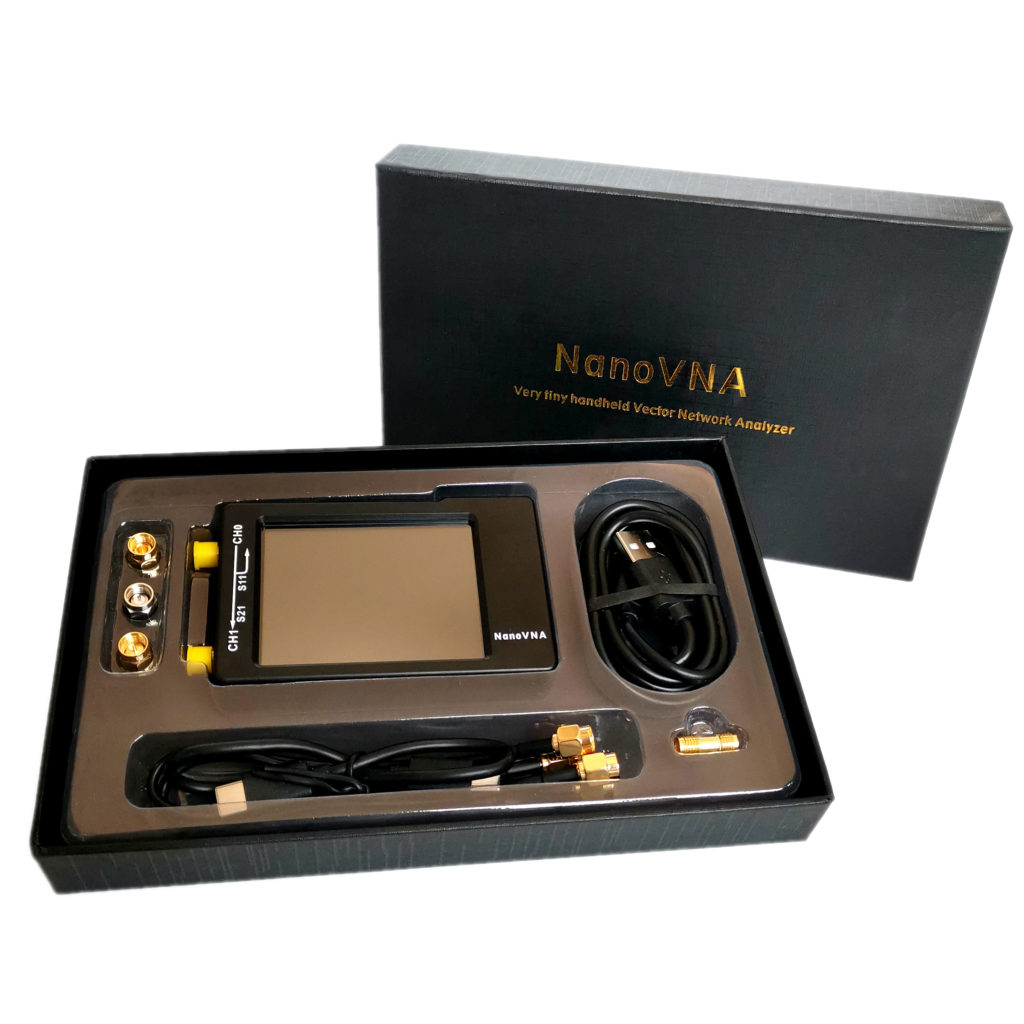About NanoVNA
NanoVNA is a handheld Vector Network Analyzer (VNA) with small outline, originally designed by edy555. It is a low cost yet high performance (at its price point) vector network analyzer (VNA), with LCD display, and can be powered from a 3.7V Li-ion battery.
As known by most hobbyists, NanoVNA has become the most popular VNA and antenna analyzer project in the community since its release in 2019.

Edy555 hosts his firmware and hardware repository at https://github.com/ttrftech/NanoVNA
Follow this link to get the original schematics and firmware documentation.Hugen improved Edy555's original design by introduction two extensions:
1) More stable battery power supply:
NanoVNA's mixer SA612A needs stable 5V power supply to work. Therefore, Edy555’s original version was unable to be stably powered from 3.7V Li-ion battery pack, and requires external USB power supply to work without flaws. Hugen’s NanoVNA-H improved NanoVNA with a 5V DC-DC boost converter, which enables stable operation driven solely by a 3.7V Li-ion battery.
2) Edy555's original NanoVNA was designed to work ranging from 50kHz-300MHz. Hugen's design extended the measurement frequency up to 900MHz by using harmonics of the internal frequency synthesizer.
Follow this link to check the firmware and hardware of Hugen's redesigned version of NanoVNA. The latest version is NanoVNA-H rev3.6 and NanoVNA-H4 rev4.3. NXP has discontinued the dual balanced mixers SA602A/SA612A/NE602A/NE612A in November 2022, Hugen is using ZeenKo NE602A to replace the SA602A/SA612A starting with the NanoVNA-H v3.7 and NanoVNA-H4 v4.4 versions, and that the version also improves the dynamics when using the base wave.
You can purchase various versions of pre-assembled NanoVNA at very affordable prices. For most, buying a pre-assembled NanoVNA-H is one of the most convenient options to have a NanoVNA ready to fly straight out of the box. Or you can try to make it by yourself if you like the fun of DIY or you plan to customize it.
Edy555 is also updating his firmware to enable harmonic extensions. And a well-fabricated NanoVNA can achieve 40dB dynamic range at 900MHz.
With community collaborations, the improved NanoVNA-H rev3.4( and later versions ) and NanoVNA-H 4 can further achieve 40dB dynamic range up to 1.5GHz. And thanks to the excellent performance of the improved NanoVNA-H Rev3.4, edy555 has increased the frequency upper limit to 2.7GHz in his 0.7.0 firmware, but users should be aware of the substantial noise floor and other uncertainties above 1.5GHz. If a vendor sells a 2.7GHz version of NanoVNA plus, it is usually a fake that does not guarantee basic performance, avoid buying these inferior products! Please note that some websites and individuals may claim that they offer upgraded versions of NanoVNA and that they are the original developers of these products. These products are not related to NanoVNA, and they may violate the GPL agreement. The NanoVNA community is unable to provide support for these products.
Cho45 also added TDR (Time Domain Reflectometer) functionality to the NanoVNA. Time domain measurements are widely used by the community to quickly measure the length of the coaxial cable and locate cable faults by calculating the discontinuous impedance.
The firmware from DiSlord optimised user experiences and improved measurement speed, and alsoadded some useful automated measurement functions.